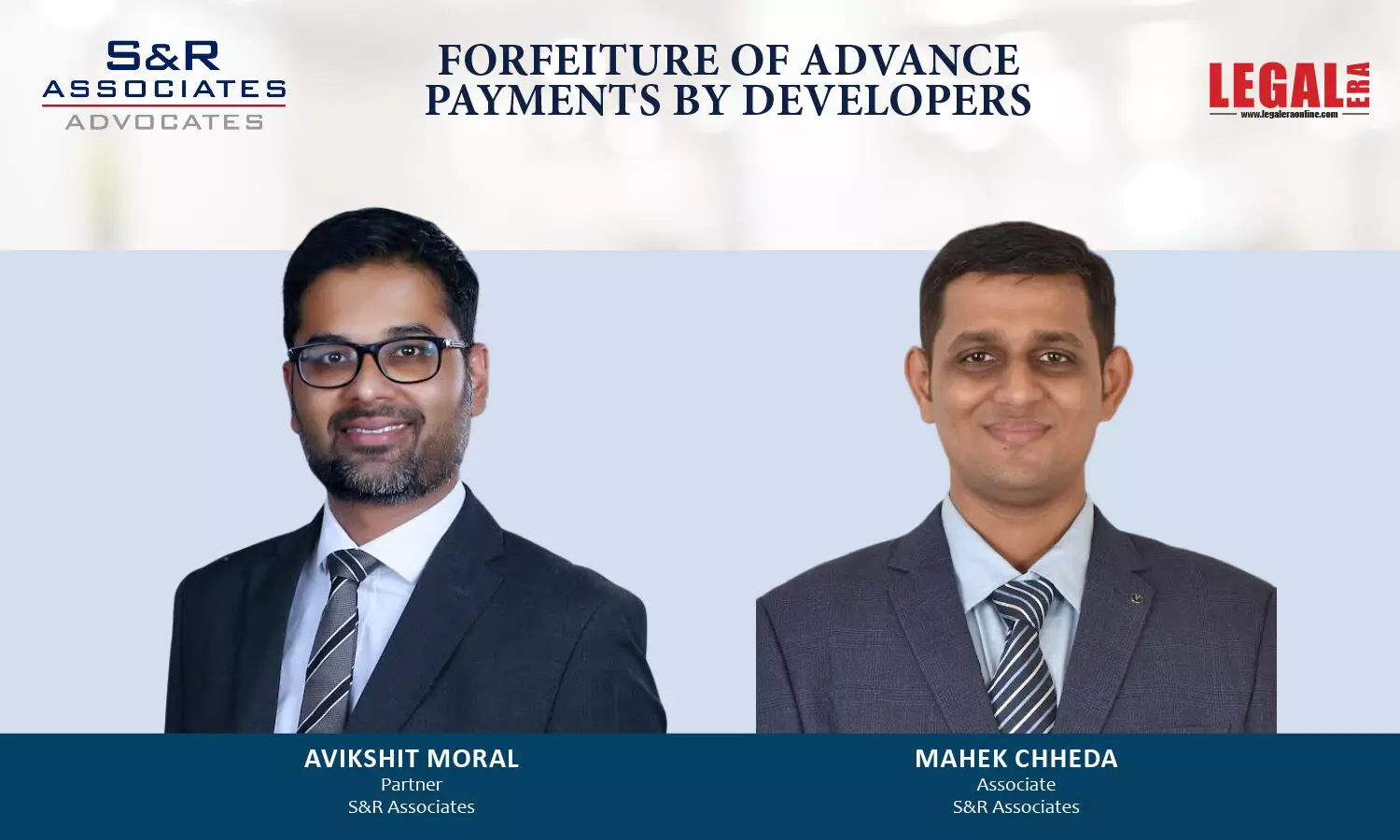- Home
- News
- Articles+
- Aerospace
- Artificial Intelligence
- Agriculture
- Alternate Dispute Resolution
- Arbitration & Mediation
- Banking and Finance
- Bankruptcy
- Book Review
- Bribery & Corruption
- Commercial Litigation
- Competition Law
- Conference Reports
- Consumer Products
- Contract
- Corporate Governance
- Corporate Law
- Covid-19
- Cryptocurrency
- Cybersecurity
- Data Protection
- Defence
- Digital Economy
- E-commerce
- Employment Law
- Energy and Natural Resources
- Entertainment and Sports Law
- Environmental Law
- Environmental, Social, and Governance
- Foreign Direct Investment
- Food and Beverage
- Gaming
- Health Care
- IBC Diaries
- In Focus
- Inclusion & Diversity
- Insurance Law
- Intellectual Property
- International Law
- IP & Tech Era
- Know the Law
- Labour Laws
- Law & Policy and Regulation
- Litigation
- Litigation Funding
- Manufacturing
- Mergers & Acquisitions
- NFTs
- Privacy
- Private Equity
- Project Finance
- Real Estate
- Risk and Compliance
- Student Corner
- Take On Board
- Tax
- Technology Media and Telecom
- Tributes
- Viewpoint
- Zoom In
- Law Firms
- In-House
- Rankings
- E-Magazine
- Legal Era TV
- Events
- Middle East
- Africa
- News
- Articles
- Aerospace
- Artificial Intelligence
- Agriculture
- Alternate Dispute Resolution
- Arbitration & Mediation
- Banking and Finance
- Bankruptcy
- Book Review
- Bribery & Corruption
- Commercial Litigation
- Competition Law
- Conference Reports
- Consumer Products
- Contract
- Corporate Governance
- Corporate Law
- Covid-19
- Cryptocurrency
- Cybersecurity
- Data Protection
- Defence
- Digital Economy
- E-commerce
- Employment Law
- Energy and Natural Resources
- Entertainment and Sports Law
- Environmental Law
- Environmental, Social, and Governance
- Foreign Direct Investment
- Food and Beverage
- Gaming
- Health Care
- IBC Diaries
- In Focus
- Inclusion & Diversity
- Insurance Law
- Intellectual Property
- International Law
- IP & Tech Era
- Know the Law
- Labour Laws
- Law & Policy and Regulation
- Litigation
- Litigation Funding
- Manufacturing
- Mergers & Acquisitions
- NFTs
- Privacy
- Private Equity
- Project Finance
- Real Estate
- Risk and Compliance
- Student Corner
- Take On Board
- Tax
- Technology Media and Telecom
- Tributes
- Viewpoint
- Zoom In
- Law Firms
- In-House
- Rankings
- E-Magazine
- Legal Era TV
- Events
- Middle East
- Africa

Forfeiture Of Advance Payments By Developers
Forfeiture Of Advance Payments By Developers

Forfeiture Of Advance Payments By Developers The Maharashtra Real Estate Appellate Tribunal (“MREAT”) has passed an order dated August 13, 2024 (“Order”)1 pursuant to which it has been held that a developer is not permitted to forfeit advance payments made by an allottee which are not in the nature of earnest money deposit. Further, the ability of the developer to forfeit any...
To Read the Full Story, Subscribe to Legal Era News
Access Exclusive Legal Era Stories, Editorial Insights, and Expert Opinion.
Already a subscriber? Sign in Now
Forfeiture Of Advance Payments By Developers
The Maharashtra Real Estate Appellate Tribunal (“MREAT”) has passed an order dated August 13, 2024 (“Order”)1 pursuant to which it has been held that a developer is not permitted to forfeit advance payments made by an allottee which are not in the nature of earnest money deposit. Further, the ability of the developer to forfeit any earnest money paid by the allottee should be clearly and explicitly specified in the contract between the developer and the allottee.
BACKGROUND
Mr. Amit Agarwal (“Allottee”) had booked two flats in the project “The Tress” being developed by Godrej Properties Limited (“Godrej Properties”) pursuant to which the Allottee was required to pay 25% of the consideration at the time registration of the agreement for sale (the “Agreement” and such payment, the “First Instalment”), 60% of the consideration was required to be paid on completion of the final floor slab of the building (“Second Instalment”) and the balance 15% of the consideration was required to be paid upon grant of possession. The Allottee had paid INR 9.74 million comprising the First Instalment for both flats, stamp duty and other charges. Since the Allottee had failed to pay the Second Instalment for the flats, Godrej Properties terminated the agreement and forfeited a sum of INR 5.66 million out of the First Instalment paid by the Allottee for the flats. Additionally, Godrej Properties did not refund the balance amount of INR 4.08 million to the Allottee.
In view of the above, the Allottee filed a complaint before Maharashtra Real Estate Regulatory Authority (“MahaRERA”) seeking refund of entire First Instalment paid by him for the flats together with interest. The MahaRERA passed an order dated August 13, 2020 (“RERA Order”)2 pursuant to which it directed Godrej Properties to refund a sum of INR 3.9 million to the Allottee in respect of both flats.
The Allottee as well as Godrej Properties filed cross appeals against the RERA Order. Godrej Properties argued that the application forms and allotment letters issued by Godrej Properties specifically provided that the First Instalment was to be treated as “earnest money” and was liable to be forfeited if the contract is terminated. Additionally, Godrej Properties argued that the earnest money was terminus-a-qua for the performance of the contract and in case of non performance, Godrej Properties is entitled to forfeit this amount in accordance with the terms and conditions of the contract. Reliance was placed on the judgement of the Supreme Court of India (“SC”) in Satish Batra vs. Sudhir Raval3 wherein it was held that earnest money is liable to be forfeited when the transaction fails by reason of a default of the purchaser. Godrej Properties argued that the rules and model agreement framed/provided under The Real Estate (Regulation and Development) Act 2016 (“RERA”) stipulates that promoters have the right to adjust any “agreed liquidated damages” prior to refund of monies to allocate on termination of agreement.

MREAT ORDER
The MREAT observed that the term “earnest money” was not included in the Agreement executed with the Allottee, but was mentioned in the application form and allotment letters issued to the Allottee. Further, Clause 40 of the Agreement provides that the Agreement supersedes previous arrangement, agreement, exchange of documents including marketing material, brochure etc. Accordingly, the MREAT held that since the term “earnest money” was not specifically referred to in the Agreement and the payment schedule in the Agreement was linked to completion of certain milestones which clearly indicated that the amounts paid by the Allottee were in the nature of part payment of the consideration.
The MREAT also observed that since Godrej Properties had sold the said flats to third parties at a higher price than that agreed with the Allottee, Godrej Properties did not suffer any losses and there was no question of adjustment and recovery of any agreed liquidated damages from the Allottee.
ANALYSING THE SCENARIO PRE AND POST RERA
Set forth below are options that were/are available to a developer in the event there is a payment default by the allottee leading to termination. In such cases, it is important to understand the difference between “earnest money” and “liquidated damages”.
Earnest money is a deposit made by a party to demonstrate their commitment and good faith in a contract. If the party fails to fulfill their contractual obligations, the earnest money may be forfeited. In Satish Batra vs. Sudhir Rawal, it was held that earnest money is paid or given at the time when the contract is entered into and as a pledge for its due performance by the depositor which could be forfeited in case of non performance by the depositor. It further held that to justify the forfeiture of any earnest money paid by the allottee, the terms of the contract should be clear and explicit.
Before the RERA came into force, there was no compulsion to follow the model agreement for sale prescribed under the Maharashtra Ownership Flats (Regulation of the promotion of construction, sale, management and transfer) Rules, 1964. Accordingly, the parties had the liberty to include language relating to “earnest money” according to the commercial understanding.
However, once the RERA came into force, the payment schedule in the model agreement for sale (“Model AFS”) prescribed under the RERA does not have the concept of earnest money while they have used words such as advance payment or application fee. Accordingly, forfeiture of advances paid by an allottee may have become challenging.
In such cases, the only remedy available to a developer would be to terminate the agreement for sale if there are three or more defaults in payment of instalments by the allottee and refund the amounts received from the allottee subject to set off of any “agreed liquidated damages” or any other amount payable to the developer. Clause 4.2 of the Model AFS provides this right to the developer.
Section 74 of the [Indian] Contract Act, 1872 governs the law on the liability of a party upon breach of contract where the parties have pre-determined the compensation or penalty payable by the breaching party. According to Section 74 of the [Indian] Contract Act, 1872, when a contract is breached, the aggrieved party is entitled to receive compensation for any loss or damage caused by such breach. However, the amount of compensation should not exceed the sum specified as liquidated damages (if any) in the contract unless it is proven that the loss was greater than the amount specified as liquidated damages. In order to enforce a provision for payment of liquidated damages, it must represent a genuine pre-estimate of the anticipated loss due to a breach. If the amount specified is deemed excessive or punitive, it may be classified as a penalty. Section 74 declares the law as to liability upon breach of contract where compensation is by agreement of the parties pre-determined, or where there is a stipulation by way of penalty4.
CONCLUSION
Since the RERA is a sector specific act, it is pertinent that developers comply with it in all respects. Given that the language used in Clause 4.2 of the Model AFS is the only method in which a developer is permitted to hold back any money paid by the allottee in case of a default by an allottee, it is important for developers to include a similar clause in their agreement for sale. Further, it should be ensured that any hold back from the monies paid by the allottee under the agreement for sale is in the nature of liquidated damages and not in the form of forfeiture of advance. For this purpose, developers should consider incorporating a clause in the agreement to sell wherein a lump sum amount of liquidated damages is required to be paid by the allottee to the developer in case of a breach by the allottee together with an option of the developer to set off such liquidated damages from the amounts paid by the allottee. Further, such instances should be disclosed in the report to be filed with MahaRERA in relation to the deviations from the Model AFS made by the developer.
2. Amit Agarwal vs. Godrej Properties Limited Complaint No. CC006000000151210 filed before MahaRERA.
3. (2013) 1 SCC 345
4. Fateh Chand vs. Balkishan Das AIR 1963 SC 1405.


